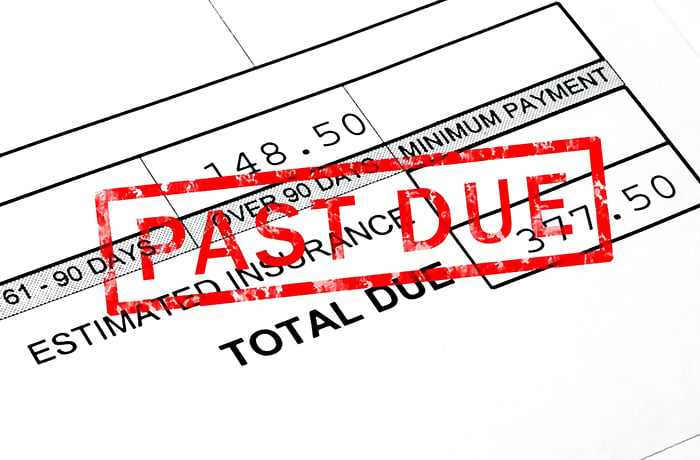Unpaid invoices? Most businesses have been there. Chasing money owed to you is, unfortunately, a big part of running a business and can take up a big chunk of your time.
If you’ve previously carried out due diligence on your customer portfolio, you should either be dealing with prompt payers or at least have an accurate forecast for when payments should be coming in. However, whether it’s out of the blue or your customer is starting to struggle to pay their bills, unpaid invoices can strike at any time.

So if you’ve sent an invoice that is now past due it has become a late, outstanding payment; here are 3 key steps to take when dealing with an unpaid invoice:
Touch base with your customer.
Firstly, always touch base with your customer and ask them (in a nice way) if they are having trouble paying the invoice. There may be a genuine reason as to why the unpaid invoice is still outstanding due to personal situations or circumstances out of their control. Many people assume the worst when they are late being paid, but that may not be the case. Reach out to your customer and see if you can agree on payment for the outstanding invoice before taking things further.
Send a formal reminder.
If you have tried to reach out to the customer and they have either not responded or promised you payment by a future date, you can send a formal reminder either straight away if you’ve had no response or on the date, they said they would pay if the funds still have not reached you
A formal reminder can be sent via email or letter and can act as evidence that you have tried to contact the customer for payment and warned them of the potential consequences if they still withhold payment.
Send an urgent reminder.
If another week of silence goes by and you have no further information about when or even if you are going to get paid, issue a final warning letter stating that there will be penalties if payment isn’t made imminently. You can continue to send these as often as you feel necessary.
You’re legally entitled to issue statutory interest rates the day the payment is late if you haven’t already agreed when the money will be paid with a customer. However, if you didn’t have an agreed payment term, the law has set a default period of 30 days before you can charge daily interest. You can also claim debt recovery costs with the amount you can charge based on the amount of the overdue invoice.
You can send these as often as you feel necessary until you have communication with the customer or a confirmed payment date along with any interest you are entitled to charge.
Debt Recovery
Once you have established that you do have a debt problem and have done all you can in terms of chasing the payment yourself, there are 2 options you could take to overcome this.
You can either instruct a debt recovery firm to recover the debt on your behalf, or instruct a solicitor to take legal action against your debtors. You can take both of these routes, but not at the same time. It’s a personal preference which route you go down; as only you know what impact the debt will have on your company if it’s not repaid. It is also your choice how much time you are willing to spend chasing the debt and how serious the matter is.
Neither route promises a guaranteed success when chasing outstanding invoices, here are some points regarding both:
Debt recovery vs hiring a Solicitor
It is worth noting that going down the legal route of either stated above should be seen as the ultimate last resort when chasing late payments, as this usually causes measurable damage or brings an end to the working relationship.
Minimising late payments
Although nobody can predict if they will ever be facing an unpaid invoice, there are ways to carry out due diligence on a business and find out what their payment habits are like before dealing with them.

Here are our top tips on how to avoid late payments:
Credit check potential customers.
By looking at a company credit report, you can see their payment behaviour based on real company experiences. This can be vital information when figuring out how they would fit into your forecasting. A company credit report can also show you any adverse information about the company, such as if they have been issued any CCJs. If a company has received a CCJ- settled or not, it usually acts as a red flag of bad payment behaviour.
Charge late payment fees.
You are entitled to charge late payment fees on outstanding invoices if they aren’t paid by the date agreed. Put a clause in your contract that states you will be charging interest on any late invoices, then your customer will know you are serious about late payments and could potentially move your invoice to the top of their list rather than suffer the extra interest costs.
Issue your own paperwork on time and maintain a contact calendar.
Make life easy for yourself and set reminders for when to send, follow up and chase invoices. It is also worth keeping in contact with your customers throughout their customer journey to ensure they are happy with your services and have no disputes before you reach the invoicing process.
Ensure your own paperwork is accurate.
Don’t give anyone an excuse to delay payment because they need an invoice to be amended and reissued. Check the dates, names, service description, address and amount are correct. Also triple check you have listed the correct bank details.
Make it easy for customers to pay your invoices.
Accept payments in multiple formats including cheques, cash, BACS and credit cards. It would also be greatly beneficial if you allow your customers to pay online via debit card or PayPal. Giving multiple options allows clients to choose what suits them best, which in turn, could mean faster payments.
By following the correct processes of due diligence and monitoring your customers consistently, you should hopefully minimise the amount of late, outstanding invoices you have to deal with; protecting your credit control management. Protecting money coming in and out of your business as part of a robust credit control policy is the key to avoiding insolvency, but also doing your due diligence and monitoring your customer base regularly is vital in keeping bad business at bay.